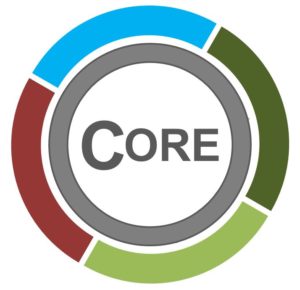
MRTs must understand their professional boundaries and not share personal opinions regarding a patient’s medical condition, diagnosis and care
Professional responsibility
- MRTs must maintain defined professional boundaries in therapeutic relationships with patients, treating all patients with respect and dignity while providing care in an unbiased manner.1,2
- Health professionals know personal information about their patient, while the patient knows little, if any, personal information about the healthcare professional. The knowledge gap can create a power imbalance in the healthcare professional and patient relationship.3
- Patients must have an opportunity to ask questions and to receive answers that satisfy their understanding.4,5
- MRTs must provide appropriate responses to patient inquiries about procedures and related issues. MRTs must not provide their personal opinion to the patient regarding the care they receive or do not receive.2
- Discussions with the patient should remain within the scope of practice and facility policies and procedures, regulatory requirements, and legislative acts.1,2
- This includes ensuring all professional activities with patients do not cause a conflict of interest.1 Providing personal opinions to patients can introduce a conflict of interest between health professionals and patients.6
- MRTs use adaptive communication and interpersonal skills with patients to effectively establish and maintain professional relationships.2
- MRTs must have the knowledge, skills and judgment to avoid placing patients at unnecessary risk of harm, pain or distress.2 This includes MRTs refraining from sharing, directly or indirectly, their personal opinions regarding the patient’s medical condition, diagnosis and care.
- Personal opinions on professional practice topics should not be shared with patients, for example topics regarding:
- Patient care
- Other healthcare professionals
- Organization and management of the facility
- Validity of the exam
- Diagnosis
- Treatment plan
- Prognosis
- MRTs must accept a patient’s (or their substitute decision maker’s) right to autonomy to consent or refuse a test, procedure or treatment regardless of the MRT’s personal opinion of these actions (see Informed Consent).1
- MRTs must refer questions that are outside the scope of their professional responsibility to an appropriate healthcare professional for answers.
- MRTs who are concerned about the decision-making capabilities of a patient, or the substitute decision maker, should adhere to local policies and procedures that bring forward such concerns to individuals who can support an investigation (e.g., discussion with patient’s healthcare team).
Self-disclosure
- Self-disclosure is defined as the act of revealing private information about oneself as well as expressing motives, needs, wants, goals, fears and feelings in general.7
- Self-disclosure by an MRT can include personal information that extends beyond the medical care associated with a patient (e.g., weekend activities, political preferences, relationships).
- Self-disclosure that is not associated with a patient’s care may strengthen therapeutic relationships as it can engage patients actively during discussion.7 However, self-disclosure can also be seen as a violation of professional and personal boundaries.3 There is no clear evidence in the peer-reviewed literature to suggest that healthcare professional self-disclosure is beneficial or damaging to the patient.8,9 As such, MRTs should use caution when determining the type of non-care information they discuss with patients.
- Before deciding whether to reveal something about themselves, MRTs should reveal the information only as a means of helping their patients. Limiting self-disclosure or generalizing the topic (rather than discussing the personal experience) can reduce the potential for unnecessary or relationship-damaging self-disclosure.10
- The main disadvantages of self-disclosure are10:
- Expands the professional relationship into a personal and potentially intimate one
- Creates risk of having to deal with demands not directly related to the consultation
- Fosters strong emotions that may require management
- Opens the door to undesirable behaviour (patient’s personal questions, seduction, etc.)
- Provokes too much curiosity about healthcare professional’s personal lives (which can be embarrassing or disrupt their practices)
- Creates risk of psychological dependency by patients
References
- Canadian Association of Medical Radiation Technologists. Member code of ethics and professional conduct. CAMRT. Published November 2015. Accessed June 23, 2020. https://www.camrt.ca/mrt-profession/professional-resources/code-of-ethics/
- Canadian Association of Medical Radiation Technologists. Competency profiles. CAMRT. Accessed October 26, 2020. https://www.camrt.ca/competency-profiles/
- National Council of State Boards of Nursing. Professional Boundaries. Published online 2018. Accessed January 20, 2022. https://www.ncsbn.org/ProfessionalBoundaries_Complete.pdf
- CMPA. Consent: A guide for Canadian physicians. CMPA. Accessed December 8, 2021. https://www.cmpa-acpm.ca/en/advice-publications/handbooks/consent-a-guide-for-canadian-physicians#intro
- Cocanour CS. Informed consent—It’s more than a signature on a piece of paper. Am J Surg. 2017;214(6):993-997. doi:10.1016/j.amjsurg.2017.09.015
- CMPA. Dealing with Conflict – Sources of conflict. Published n.d. Accessed January 20, 2022. https://www.cmpa-acpm.ca/serve/docs/ela/goodpracticesguide/pages/professionalism/Dealing_with_conflict/sources_of_conflict-e.html
- Kadji K, Schmid Mast M. The effect of physician self-disclosure on patient self-disclosure and patient perceptions of the physician. Patient Educ Couns. 2021;104(9):2224-2231. doi:10.1016/j.pec.2021.02.030
- Re: Should doctors share their personal experiences of healthcare with patients? Published online January 6, 2022. Accessed January 6, 2022. https://www.bmj.com/content/363/bmj.k4312/rr
- Robinson F. Should doctors share their personal experiences of healthcare with patients? BMJ. 2018;363:k4312. doi:10.1136/bmj.k4312
- Lussier MT, Richard C. Self-disclosure during medical encounters. Can Fam Physician. 2007;53(3):421-422.
Related Posts
-
PATIENT MANAGEMENT Topic Guideline Patient Care Communication of critical or unexpected findings Core Patient monitoring…
-
PATIENT SAFETY TOPIC GUIDELINE General Safety Infection control Core Maintenance of CPR certification…
-
Relevant patient history is obtained, reviewed and considered before an exam, procedure or treatment …
